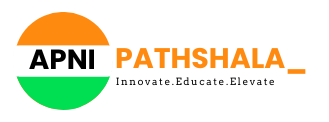What Is Alternative Education? A Beginner’s Guide

What comes to your mind when you hear of alternative education? An alternative to education? No, but you’re quite close to the answer- it means an alternative approach to education! In a world where traditional education systems often follow rigid frameworks, alternative education offers a refreshing approach. Based on the foundation of flexibility and creativity, this model addresses the diverse needs of learners and emphasizes personalized growth over standardized outcomes. If you’re curious about what alternative education is, its types and other aspects- you are at the right place! What is Alternative Education? Alternative education is a different approach to learning that is completely different from the typical methods used in traditional schools. Instead of sticking to rigid rules and standard curriculums, alternative education creates space for more flexible and creative ways of teaching. It’s especially helpful for students who might struggle in conventional school settings or those who simply want a learning experience that suits their unique needs. Key Characteristics of Alternative Education Types of Alternative Education Models a. Montessori Schools Montessori schools focus on letting kids take charge of their own learning. Instead of teachers dictating every step, children explore and learn at their own pace with practical activities. Montessori schools encourage independence and curiosity, helping children grow into confident learners. b. Waldorf Education If creativity is your child’s main focus area, Waldorf schools could be a perfect fit. This model mixes academics with artistic and imaginative activities to nurture the whole child. Waldorf education aims to create well-rounded individuals with strong imaginative and critical-thinking skills. c. Homeschooling Homeschooling, as the name suggests- allows parents to handle the education of their child themselves. This offers a personalized experience that adapts to the kid’s pace and interests. Homeschooling is ideal for families seeking flexibility and personalized education paths. d. Forest Schools Imagine a school amidst a forest! Sounds exciting, right? Forest schools focus on outdoor learning, helping kids connect with the environment while building practical skills. Forest schools are perfect for children who work well in open and adventurous settings. e. Online Schools The most famous form of teaching- thanks to covid19! Technology has made education accessible anywhere, anytime. Online schools offer students the flexibility to learn without being tied to a physical location. Online schools are great for families who want convenience without compromising quality education. Who Benefits from Alternative Education? So, till now it is clear that alternative education isn’t just another way of learning. It’s a lifeline for many who don’t fit into the traditional schooling mold. Now let’s move on and see who can benefit the most in these environments: 1. Creative Thinkers For kids who just flash their brightest of smiles when given the freedom to explore, alternative education is a perfect match. These are the dreamers, problem-solvers, and innovators who work excellently in unstructured or practical settings. Traditional classrooms may curb their creativity, but alternative models give them the space to think outside the box. 2. Neurodivergent Students Children with ADHD, autism, or dyslexia often face challenges in conventional classrooms, where the normal teaching doesn’t address their unique needs. Alternative education offers personalized approaches, smaller class sizes, and empathetic teachers who focus on their strengths. 3. At-Risk Youth Some students struggle in mainstream schools due to personal or social challenges like bullying, anxiety, or unstable home environments. Alternative education provides a supportive, inclusive atmosphere where they can rebuild confidence and rediscover the joy of learning. 4. Families Seeking Values-Based Education Many parents want an education that aligns with their religious, ethical, or cultural beliefs. Alternative education allows families to integrate these values into their child’s learning experience, ensuring that the education feels both personal and meaningful. Challenges of Alternative Education There are two sides of a coin. As promising as it is, alternative education isn’t without its challenges: Alternative Education in India: The Role of Apni Pathshala In India, where traditional route learning often takes center stage, organizations like Apni Pathshala are breaking the generational cycles. They’re proving that education can be creative, inclusive, and deeply impactful. What Makes Apni Pathshala Different? If you want to know more about Anipathshala’s work or want to start an alternative education pod- contact us! How to Choose the Right Alternative Education Path? If you’re thinking of taking the alternative way, here are some tips to make the best choice: FAQs on Alternative Education Q: Is alternative education suitable for all students? A: While highly beneficial for many, it depends on individual needs and learning styles. Q: Do alternative education schools follow a curriculum? A: Most follow a flexible curriculum, often aligning loosely with national standards. Q: Can students from alternative schools join mainstream colleges? A: Yes, many alternative education systems equip students with skills and certifications recognized globally.
